Insurance Coverage Considerations for Qui Tam and FCA Claims
False Claims Act (FCA) and Qui Tam matters cost companies massive amounts each year. Insurance coverage for these costs is available for both the defense costs and liabilities associated with these type of claims, but unfortunately insurers do not step up and offer coverage without a fight. Accessing the coverage often requires tenacity and ingenuity. The following are some best practices and guidelines that companies and defense counsel should consider when enforcing insurers’ obligations with respect to these matters.
Review all lines of coverage:
FCA and Qui Tam matters do not fit neatly into one line of coverage, so all available policies must be considered. These would include Directors & Officers, Errors & Omissions, and General Liability policies. Because whistleblowers generally are employees, Employment Practices Liability and Employers’ Liability also should be considered. Cyber liability policies often include varied types of coverage, and depending on the facts, may apply too. The client’s risk manager or in-house legal team should be interviewed to make sure no relevant coverages are overlooked.
Determine When Notice Should be Given to the Insurer(s):
Generally, early notice is the best course, but many D&O policies contain somewhat more nuanced notice provisions. These policies allow for an optional Notice of Circumstances before there is a Claim, as that term is defined in the policies. If the insured chooses to submit a Notice of Circumstances, any future Claims are placed into the policy year in which the Notice of Circumstances was provided. In other words, the client has a certain amount of control over which policy year is triggered, and often must consider many legal and business issues to make the correct choice (i.e., avoid submitting a Notice of Circumstances, or Claim, if the policy already is subject to exhaustion through prior claims payments).
Complaints Under Seal:
One of the obvious challenges to providing notice of Qui Tam actions is that the complaints are under seal, and the extent to which a defendant may disseminate the complaint is strictly limited. Nevertheless, insurance case law is not always sympathetic to policyholders who delay notice on this basis. It is therefore necessary for defense counsel and insurance counsel to work together to seek limited relief from the seal, or to determine another work-around, so that timely notice can be given within the terms of the policy.
Application of Definition of “Professional Services:”
Coverage often turns on whether the allegations against the insured fall within the definition of Professional Services, and courts frequently construe this term narrowly. To fall within the definition, usually the services themselves, and not merely the billing for the services, must be a target of the government’s investigation. The type of policy most likely to govern coverage for the claim will influence the policyholder’s analysis of whether the complaint’s allegations may fall within the Professional Services definition. Typically, D&O policies include an exclusion for Professional Services, so insureds seeking to trigger a D&O policy (if that is the only available coverage) argue that the activity is outside the definition. In contrast, Errors & Omissions policies often require the Professional Services definition to be met to trigger coverage, so the policyholder must argue accordingly. This potential contradiction highlights the importance of reviewing all policies carefully at the outset and devising a cohesive theory of coverage.
Cooperate with the Insurer:
All policies impose duties of cooperation on the insured, and providing the right level of cooperation often involves walking a tight rope. The insurer is an actual or potential adverse party, so all information provided must be carefully considered by coverage counsel. Providing too much information risks waiver of privilege, or possibly providing an insurer information that could be asserted in support of a policy exclusion. On the other hand, it is important to make a record that prompt and accurate answers are provided to reasonable requests by the insurer.
Coordination Between Defense Counsel and Coverage Counsel:
Defense counsel and coverage counsel should coordinate closely to ensure that positions taken by defense counsel in defense of the action, and other positions taken by coverage counsel in communications with the insurer, are consistent with each other, and that one set of communications does not prejudice the client’s objectives with respect to the other.
Policy Review at Time of Placement:
Insurance policies are lengthy and complex documents, but, as with most contracts, a relatively small sub-set of the provisions generate most of the disputes. In a relatively concise review, an experienced coverage lawyer can identify the hot spots and recommend policyholder-friendly wording that greatly enhances the likelihood of a successful claim. Insurers will not agree to all proposed revisions to policy terms, but an insurance policy can be negotiated like any contract, and some improvements typically can be achieved, usually without added premium.
More from the Milone Law Firm Blog
Minimizing Litigation Costs by Maximizing the Value of Insurance Coverage
An Article highlighting the key points that in-house counsel should consider to maximize the value of their company’s insurance coverage.
Chambers Practice Area Overview – District of Columbia: Insurance: Policyholder
For insurance matters of national importance, clients often hire Washington, D.C. counsel as insurance law across the USA is heavily influenced by them.
Why Every Company Should Have an Insurance Coverage Lawyer Review its D&O Policy as Part of its Annual Renewal
Director’s & Officer’s (D&O) insurance policies are contracts potentially worth tens of millions of dollars, but during their annual renewal, their wording frequently is given little or no review.

